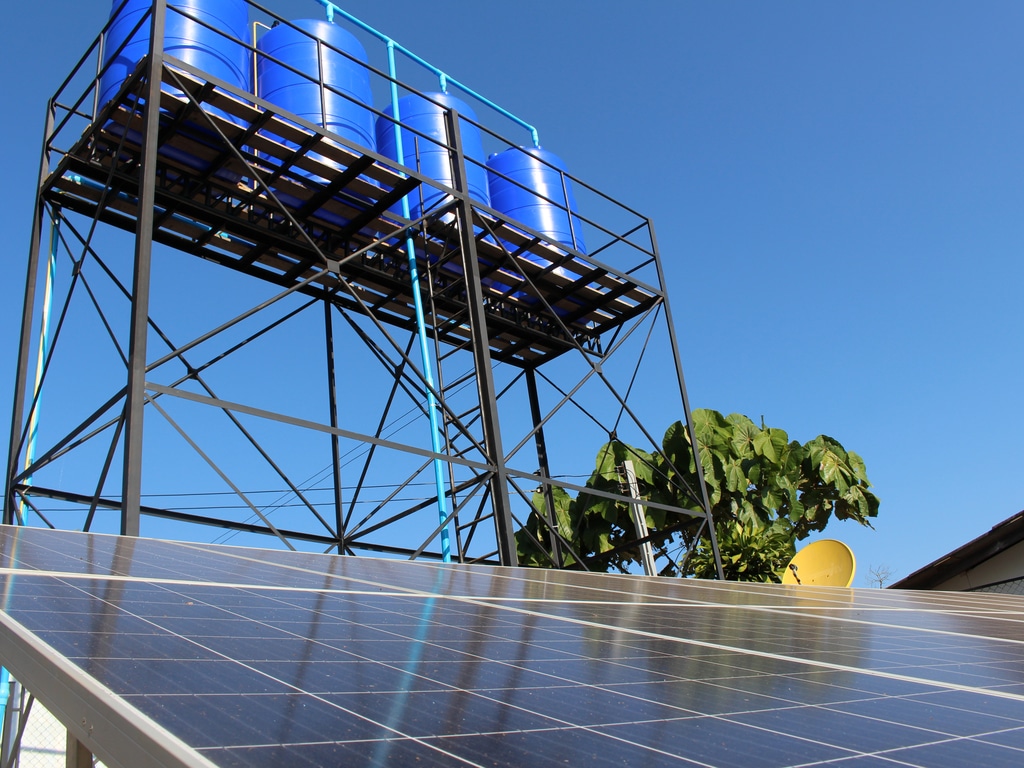Drinking water shortages, due to an “approximate” power supply in Dedza, could be reduced. The district, located in the Central Region of Malawi, has just acquired a hybrid solar power plant. The 87.4 kW plant has powered two submersible water pumps in Dedza. The work was carried out by the Foundation for Irrigation and Sustainable Development (Fisd); a provider of irrigation, water and clean energy services based in Lilongwe, the capital of Malawi.
“The Dedza hybrid power plant is currently being tested. It consists of 320 solar panels. The energy generated by the plant will power the two water pumps in the district, producing 0.013 m3 of water per second,” says Raymond Mwenitete, Fisd’s director. Currently, the demand for drinking water in Dedza is 7,000 m3 per day, but the Central Region Waterboard (CRWB) in Malawi produces only 2,000 m3 of water per day.
A project supported by the World Bank
The construction work for the Dedza hybrid solar power plant was financed by a $1.2 million loan (about 900 million Malawian Kwacha) from the World Bank. The plant is connected to the grid of Electricity Supply Corporation of Malawi (Escom) to guarantee the operation of the water pumping system. CRWB’s managing director, Gift Sageme, explains that “Dedza’s submersible water pumps pump water 100m deep into the ground. The water is then pumped through 4.5m pipes to drinking water plants in the Dedza district”.
Inès Magoum
